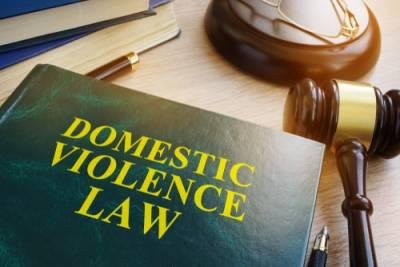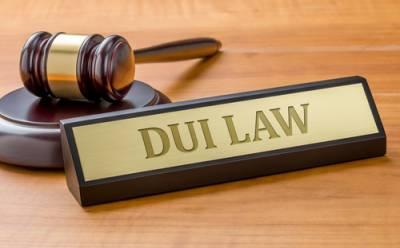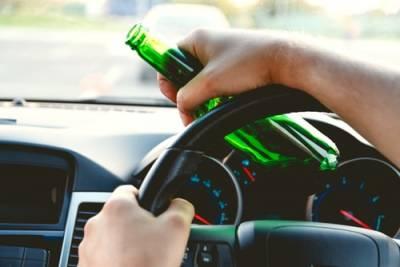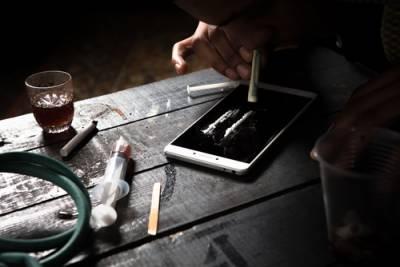Recent Blog Posts
Domestic Violence Charges in Connecticut
 Connecticut imposes strict penalties for domestic violence. As such, if you have been charged with domestic violence in the state, you owe it to yourself to become knowledgeable as to the consequences of a conviction. Jail time, fines, and damage to your personal reputation are among the adverse outcomes. With so much on the line, experienced legal representation in matters of criminal defense is essential.
Connecticut imposes strict penalties for domestic violence. As such, if you have been charged with domestic violence in the state, you owe it to yourself to become knowledgeable as to the consequences of a conviction. Jail time, fines, and damage to your personal reputation are among the adverse outcomes. With so much on the line, experienced legal representation in matters of criminal defense is essential.
Domestic Violence Is Termed “Family Violence” in Connecticut
In Connecticut, domestic violence is categorized as “family violence.” Under state law, family violence is an event that occurs between family or household members that either causes physical injury or produces fear the physical injury is imminent. Family or household members include:
- People who are related;
- People who are or were married;
Repeat Drunk Driving Charges in Connecticut
 If you have been charged with a second, third, or subsequent DUI or DWI in Connecticut, you face very harsh penalties with regard to your personal freedom, finances, reputation, and driving privileges. Alcohol, as you are likely aware if you have previously been convicted of DUI or DWI, is a common source of problems in both the state and nation at large. According to the National Institute on Alcohol Abuse and Alcoholism (NIAAA), over 25% of people ages 18 and over reported that they engaged in binge drinking the past month.
If you have been charged with a second, third, or subsequent DUI or DWI in Connecticut, you face very harsh penalties with regard to your personal freedom, finances, reputation, and driving privileges. Alcohol, as you are likely aware if you have previously been convicted of DUI or DWI, is a common source of problems in both the state and nation at large. According to the National Institute on Alcohol Abuse and Alcoholism (NIAAA), over 25% of people ages 18 and over reported that they engaged in binge drinking the past month.
Over 15 million adults in the U.S. alone have alcohol use disorder, and every year an estimated 88,000 people die from alcohol-related causes. The economic cost of alcohol misuse is staggering – running at 249 billion annually in the U.S. When it comes to alcohol misuse and Connecticut’s roads and highways, the state has little tolerance for those who drink and drive – especially after already having a DUI or DWI conviction.
Opiate Drug Possession Charges in Connecticut
 A Connecticut drug possession, sale, or distribution conviction may have ramifications beyond jail, fines, mandatory rehab and counseling, and community service. There is also reputational damage, the social stigma of your name being associated with drug use, and if you have children, potential loss of child custody. Each one of the detriments is only magnified if you face a second, third, or subsequent drug conviction.
A Connecticut drug possession, sale, or distribution conviction may have ramifications beyond jail, fines, mandatory rehab and counseling, and community service. There is also reputational damage, the social stigma of your name being associated with drug use, and if you have children, potential loss of child custody. Each one of the detriments is only magnified if you face a second, third, or subsequent drug conviction.
With regard to child custody, state family court judges are vested with substantial discretion to issue child custody orders so long as they are “in the best interests of the child.” If you have a criminal history, it will likely factor into matters of custody if the judge feels that the child has been or will be put at risk of violence, abuse, neglect, or endangerment. With the fundamental right to direct the upbringing and education of your child at stake, it is imperative that you retain experienced criminal defense counsel if you have been charged with a drug crime in Connecticut.
Assault Charges in Connecticut
 Springtime is nearly here, and with it returns much fanfare. From the “March Madness” of the NCAA Tournament to spring break for “senioritis” for graduating high school seniors to college spring break to the simple pleasure of warming weather and clearing skies, a degree of wildness is in the air. When wild feelings to turn to wild actions, however, springtime fun runs the risk of devolving into springtime punishment. When verbal matters turn physical at a spring social gathering and an assault charge results, under no circumstances will a Connecticut court accept “March Madness” or “senioritis” as a defense.
Springtime is nearly here, and with it returns much fanfare. From the “March Madness” of the NCAA Tournament to spring break for “senioritis” for graduating high school seniors to college spring break to the simple pleasure of warming weather and clearing skies, a degree of wildness is in the air. When wild feelings to turn to wild actions, however, springtime fun runs the risk of devolving into springtime punishment. When verbal matters turn physical at a spring social gathering and an assault charge results, under no circumstances will a Connecticut court accept “March Madness” or “senioritis” as a defense.
Rather, the court will be concerned with facts, timeline, judicial and prosecutorial procedure, evidence, testimony, and there relevant, any criminal history of the accused. If you have been charged with assault in Connecticut, you need to be aware of the consequences you face and the need for an experienced criminal defense attorney.
Juvenile Charges in Connecticut
 When a juvenile is charged with a crime in Connecticut, the young person will either require juvenile court defense in the state’s juvenile justice system or criminal defense in one the state’s (adult) courts. The difference from one scenario to the other may be pronounced. This is because, with regard to adults, who are presumed to have reached the age of maturity and thusly be fully contemplating intentions, actions, and consequences, the same cannot be said as concerns juveniles. Here, the words "age of maturity" loom large.
When a juvenile is charged with a crime in Connecticut, the young person will either require juvenile court defense in the state’s juvenile justice system or criminal defense in one the state’s (adult) courts. The difference from one scenario to the other may be pronounced. This is because, with regard to adults, who are presumed to have reached the age of maturity and thusly be fully contemplating intentions, actions, and consequences, the same cannot be said as concerns juveniles. Here, the words "age of maturity" loom large.
Prior to this age (eighteen in the state of Connecticut), juveniles are presumed to still be in a process of cognitive and emotional development, not yet fully contemplating and regulating intentions, actions and thus not deserving of consequences parallel to those meted out in the adult court system. For adults, a governing theory is often that of "retribution," which is concerning with conduct deterrence through punishment, and with restoring the balance between the individual and society by imposing damages for breaches in the social contract.
Protecting Your Driving Privileges Following a Connecticut DWI Arrest
 In the month of March, law enforcement are on the lookout for drivers running afoul of the state’s alcohol-related driving laws on the way home from watching events like the Academy Awards and the NCAA basketball tournament. With the Oscars running time at four hours, and March Madness running from before noon until midnight in its opening week, there is an increased risk for individuals consuming alcoholic beverages to exceed the legal Blood Alcohol Concentration (BAC) level for driving. For this reason, it is very important to understand what BAC is, how it works, how easily the legal limit can be exceeded, and the penalties for driving with an impressible BAC. Driving in the state of Connecticut is a privilege – one that can be taken away on a temporary or permanent basis following a DWI conviction. Knowing the law and your legal rights when it comes to driving and alcohol is a must.
In the month of March, law enforcement are on the lookout for drivers running afoul of the state’s alcohol-related driving laws on the way home from watching events like the Academy Awards and the NCAA basketball tournament. With the Oscars running time at four hours, and March Madness running from before noon until midnight in its opening week, there is an increased risk for individuals consuming alcoholic beverages to exceed the legal Blood Alcohol Concentration (BAC) level for driving. For this reason, it is very important to understand what BAC is, how it works, how easily the legal limit can be exceeded, and the penalties for driving with an impressible BAC. Driving in the state of Connecticut is a privilege – one that can be taken away on a temporary or permanent basis following a DWI conviction. Knowing the law and your legal rights when it comes to driving and alcohol is a must.
The Law Makes Presumptions About Impairment Irrespective Of Subjectivity
Felony Murder Charge in Connecticut
 It goes without saying that the charge of murder is one of the utmost seriousness, in Connecticut and every other state in the U.S. If you have been charged with a murder that occurred during the alleged commission of a felony in Connecticut, it is imperative that you retain experienced legal counsel. With a very lengthy prison sentence and other harsh penalties dispensed following a conviction, a strong legal defense is unquestionably a necessity.
It goes without saying that the charge of murder is one of the utmost seriousness, in Connecticut and every other state in the U.S. If you have been charged with a murder that occurred during the alleged commission of a felony in Connecticut, it is imperative that you retain experienced legal counsel. With a very lengthy prison sentence and other harsh penalties dispensed following a conviction, a strong legal defense is unquestionably a necessity.
Intent is at Issue in a Connecticut Murder Charge
Murder is one of the oldest crimes to be codified into law. Originally defined as “the killing of a human being by another with malice aforethought,” murder may be understood in the modern era in Connecticut as the intentional causation of the death of another. Whether in the old language of “malice aforethought” or the updated vernacular of “intentional causation,” the issue of intent – of a culpable state of mind – is at the heart of a murder prosecution. In some cases, intent is quite clear, such as in a premeditated shooting of one person by another. In other instances, murderous intent is more complex and carefully defined by statute. The latter is true with regard to Felony Murder in Connecticut. Under state law, Felony Murder has been committed when one person causes the death of another while committing, attempting to commit, acting in furtherance of, or fleeing any of the below enumerated felony crimes:
Prescription Drug-Related Connecticut DUI Charge
 In Connecticut, as in every other state, alcohol is not the only substance that can lead to a DUI charge. Driving while under the influence of drugs, whether illicit or a lawful prescription, may also result in a Connecticut DUI or DWI charge. Importantly, the penalties for a prescription drug-related DUI conviction are no different than those for a traditional, alcohol-based DUI. This is because the duty of safe driving is at issue. All drivers owe this duty to one another, and when one driver endangers another while under the influence, the nature of influencing substance is a secondary concern. Certainly, if the substance is illicit, a DUI charge may be coupled with separate drug charges. As for the DUI component, however, the penalties are the same.
In Connecticut, as in every other state, alcohol is not the only substance that can lead to a DUI charge. Driving while under the influence of drugs, whether illicit or a lawful prescription, may also result in a Connecticut DUI or DWI charge. Importantly, the penalties for a prescription drug-related DUI conviction are no different than those for a traditional, alcohol-based DUI. This is because the duty of safe driving is at issue. All drivers owe this duty to one another, and when one driver endangers another while under the influence, the nature of influencing substance is a secondary concern. Certainly, if the substance is illicit, a DUI charge may be coupled with separate drug charges. As for the DUI component, however, the penalties are the same.
Always Read the Label on Your Prescriptions
Even over-the-counter medicines such as cold remedies and antihistamines may cause one to become drowsy or disoriented and, as such, refrain from getting behind the wheel of a car, truck, or other vehicle. Behind-the-counter medications and treatments, only obtainable with the prescription of a physician, may be magnitudes stronger. This is especially the case with pain medication, some of which are derived from opiates – a very powerful class of drug. Because of this, it is critical that you follow the exact orders of the prescribing physician in taking the prescription, including taking time to read the label and understand any side-effects that you may experience. The duty is on you and an officer arresting you for DUI will not sympathetic to surprise prescription side-effect-related explanations.
Drug Charges in Connecticut
 Fentanyl, a synthetic opioid pain reliever that is 50 to 100 more powerful than morphine, is now firmly on the radar of state and federal law enforcement. This drug has become a scourge, ushering in an addiction crisis like the country has never seen before, killing tens of thousands, and ensnaring many more in its grip.
Fentanyl, a synthetic opioid pain reliever that is 50 to 100 more powerful than morphine, is now firmly on the radar of state and federal law enforcement. This drug has become a scourge, ushering in an addiction crisis like the country has never seen before, killing tens of thousands, and ensnaring many more in its grip.
Perversely, where there is a blight of addiction, there is also an economic orbit. Thus, as scores grapple with the ill effects of fentanyl addiction, there is much activity directed at illicitly importing, distributing, and selling the deadly drug in both Connecticut and of the nation at large. For those charged with the possession or distribution of fentanyl, serious criminal penalties may be imposed upon conviction. In confronting such charges, the experience of a Fairfield County criminal defense attorney is essential.
Fentanyl to Be a Schedule 1 Drug Under Federal Law
Sexual Assault Charges in Connecticut
 Our nation is in the midst of a movement against sexual assault, misconduct, and rape. Allegations, admissions, and denials are taking place in the highest halls of politics, media, and entertainment, as well as in the most common corridors of daily life.
Our nation is in the midst of a movement against sexual assault, misconduct, and rape. Allegations, admissions, and denials are taking place in the highest halls of politics, media, and entertainment, as well as in the most common corridors of daily life.
In some instances, an allegation may be made strictly in the court of public opinion (e.g. via social media), but still so powerful effect in the form of reputational damage. In other instances, allegations may be formally made in civil or criminal court. With regard to criminal charges for rape, sexual assault, or other sexual misconduct, the accusations must be confronted in court, as the law requires.
Punishments and reputational damage following a conviction may be severe and include a prison sentence. If you have been charged with a sex crime in the state of Connecticut, it is critical that you obtain competent and diligent legal representation.







